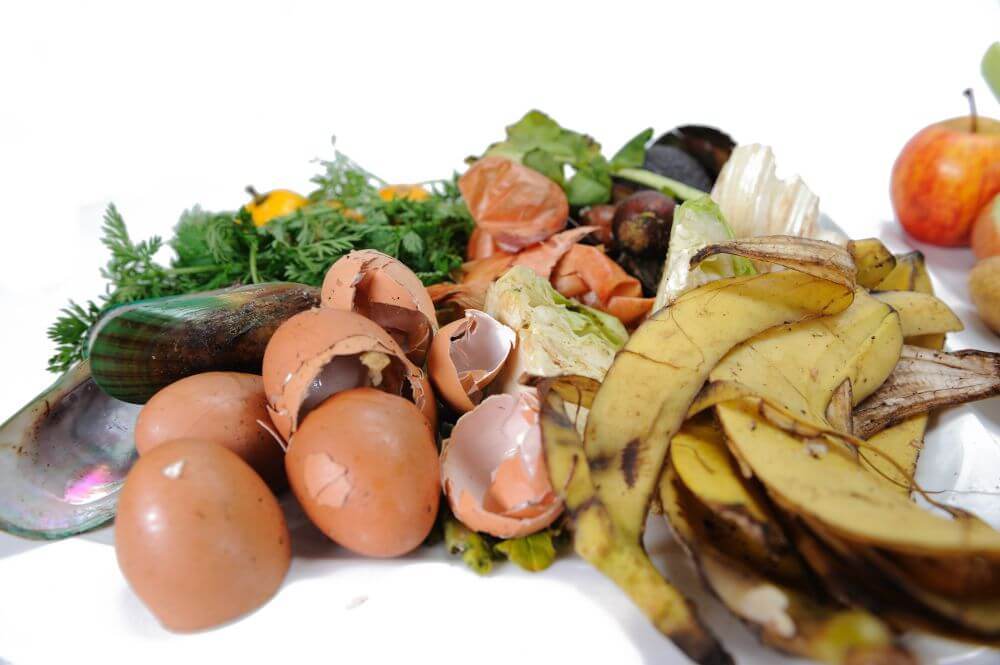What to do with food that can’t be eaten

What should you do with food scraps that can’t be eaten?
If you have ever looked through your rubbish bin you will know that there are some food items that can’t be eaten – things like chicken bones, egg shells, citrus peels and banana skins.
Sure, some of these food scraps have other uses (hello, banana peel cake), but for the most part, you won’t be able to eat it. This is called unavoidable food waste.
Even though this food isn’t edible, it shouldn’t be send to landfill as it will have a negative impact on the environment.
Some areas in New Zealand, like Christchurch and Raglan, have a food waste collection run by their local Council which takes away this non-avoidable food waste for composting. A city-wide household food scraps collection is in the pipeline for Auckland.
If you live in an area that doesn’t have access to a food scraps collection, you can recycle your scraps yourself through composting, or a bokashi or worm farm.
It can take a little time, money and effort to set up these systems, however, the payoff is huge as you keep food waste out of landfill, and you can return those nutrients to your garden to then grow your own food.
Any edible food that ends up in a compost or a food waste collection is still waste. We buy food to feed our families, not to feed our compost bins, so by throwing away our leftovers or food we forget to use, we end up making very expensive compost. Learn more about how to reduce your food waste.
Composting

Composting is a natural way of recycling. It breaks down food into a rich compost that enriches soil and makes your garden beautiful and fruitful.
Composting requires you to have space in your backyard to set up bin and a garden on which to spread the compost.
Learn more: Composting 101
Bokashi

Bokashi is a form of fermented composting which is done on a small scale and in a sealed container. It’s perfect for people who don’t have the space for a compost pile, have a small garden or who need compost in a hurry.
Learn more: Bokashi 101
Worm Farms

In a worm farm, special worms eat food scraps and other organic matter such as leaves and paper. Their byproducts – known as castings and liquid tea – are collected and can be applied to your garden as fertilizer.
Learn more: Worm Farm 101
Feed it to animals
Feeding food scraps to pets or animals is any easy way to dispose of your food waste. It can be a win-win situation; you are getting food for your animals and pets while also stopping your food waste from ending up in landfill. However, it is important that you make sure that the food you are feeding to animals is safe for them to eat.
Learn more: The foods you should never feed to animals
What to do if you don’t have a garden:
If you live in an apartment or high density housing area where you don’t have a garden or any outdoor space. then none of these systems may suit your living situation.
If that is you, here are some other options:
- Peels
Peels connects people who wish to recycle their kitchen scraps with their neighbours who are already composting, worm-farming or have chickens. It is free to use. - Kai Cycle
If you live in Wellington, you can have your food scraps collected by bicycle and delivered to Kai Cycle’s urban farm where they will turn it into compost for their garden. - We Compost
If you live in Auckland, We Compost runs a domestic compostable waste collection, in addition to their business collections. - Food Waste Fairy
The Food Waste Fairy operates in some suburbs in Auckland. She will provide you with a Bokashi kit, and then can collect it once your bokashi bin is full. - Auckland CBD
If you live in the Auckland CBD, there is a compost bin outside the Community Fridge in Griffith Gardens where you can drop off your food scraps.
Tip: Collect your food scraps in the freezer until you have time to transport it. This will stop it from smelling and prevent fruit flies.
